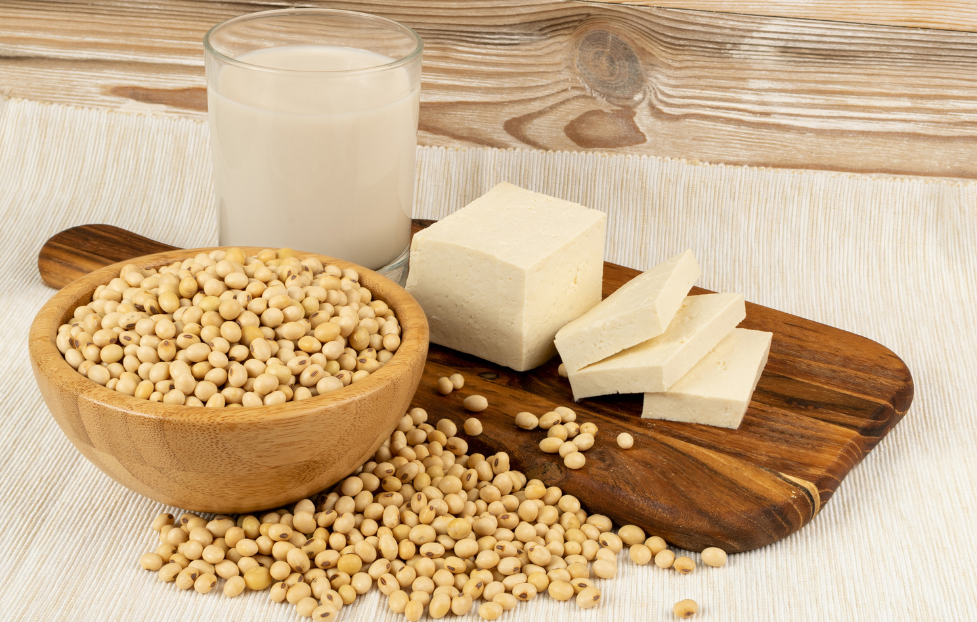
Can Phytoestrogen Foods Help Your Menopausal Symptoms?
Is it possible that certain foods or adjustments in your diet could really relieve the symptoms of menopause? It might sound too good to be true, but let’s explore this further. Can phytoestrogen foods help your menopausal symptoms?
What are phytoestrogens?
Phytoestrogens are plant-based compounds that mirror the structure of our natural oestrogen, a key female sex hormone that declines during menopause. When eaten, phytoestrogens can mimic the behaviour of oestrogen.
During menopause there is a significant reduction in our own oestrogen levels, contributing to annoying symptoms, consuming phytoestrogens may offer relief.
However, there’s a catch.
Phytoestrogens might alleviate menopausal symptoms for only about one in three women. The reason for this lies in the diversity of gut bacteria among individuals. Roughly one in three women possess a specific type of gut bacteria capable of converting phytoestrogens in soy into a more potent and useful form known as “Equol.”
How can you determine if you belong to this category? It’s a matter of experimentation. By incorporating rich sources of phytoestrogens into your daily diet for at least 3-4 weeks, you can gauge whether they have a therapeutic effect.
As a practical suggestion, consider swapping your regular latte for calcium-enriched soy milk, using soy milk with your cereal, and including 200g of tofu or 100g of tempeh in a stir-fry. This approach allows you to explore the potential benefits of phytoestrogens during menopause and see if they work for you.
Even if you are not the one in three that respond, phytoestrogens can still provide these health benefits. As well as their potential oestrogenic action, foods that contain phytoestrogens also offer other nutritional benefits including protein, fibre, vitamins, and minerals. Soy protein may also help to lower LDL cholesterol.
Are soy foods safe to eat in menopause?
One aspect of menopause and diet that requires clarification is the role of phytoestrogens. Among these, soy is the most recognised. However, there’s a misconception that consuming phytoestrogens, particularly soy, might negatively impact hormonal health.
This confusion has led to misinformation and uncertainty regarding the relationship between soy, breast cancer, and its risk. Comprehensive research indicates that incorporating whole soy foods like tofu and tempeh in quantities comparable to traditional Asian diets is not only safe but can decrease the risk of breast cancer, particularly if regularly consumed before puberty. Additionally, this dietary approach doesn’t raise the risk of breast cancer recurrence in survivors.
What are the different types of phytoestrogens?
- Isoflavones (found in soy and other legumes such as chickpeas, mung beans and alfalfa)
- Coumestans (found in alfalfa and clover sprouts, and sprouted legumes such as mung beans and soy sprouts)
- Lignans (found in linseed, grains and vegetables)
What foods contain phytoestrogens?
You can find phytoestrogens in foods like tempeh, soybeans, tofu, miso, whole soybean soy milk, flaxseed, sesame seeds, sunflower seeds, pistachios, almonds, chickpeas, lentils, red kidney beans, alfalfa, mung beans and split peas.
If you would like help with reducing your menopausal and perimenopausal symptoms, book a consultation with me here.
You might like to read some more of my blogs.
